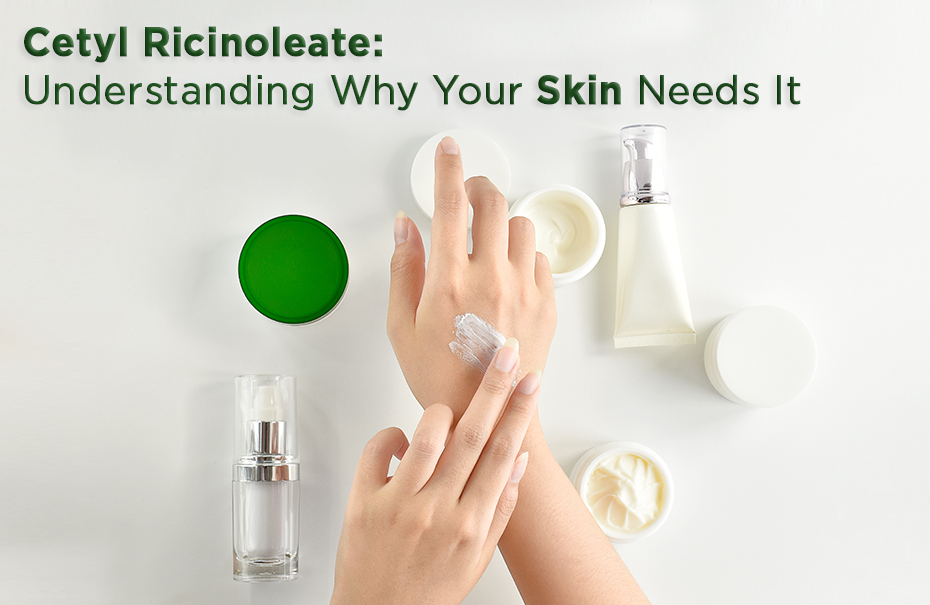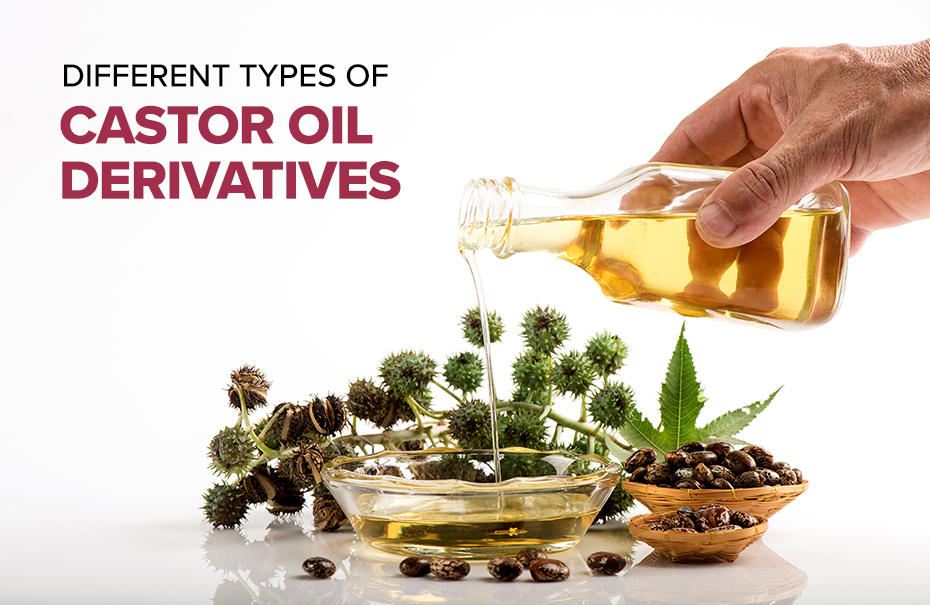Cetyl Ricinoleate: Understanding Why Your Skin Needs It

Cetyl Ricinoleate, the name may sound so chemically but guess what? It is a natural fatty acid made from castor oil that, too, is used in cosmetics.
The Skin-Friendly Fatty Acid
Consumers today are becoming very much health conscious and hence are making the switch to natural, organic, and chemical & cruelty-free cosmetic products more. Such a drastic change is paving the way again for ancient practices where natural substances were used for beautifying as well as treating skin.
Aloe vera, olive oil, coconut oil, banana, cucumber, lemon, etc., are some of the popular skincare ingredients that were used since ancient times and are now star ingredients in cosmetic products. Among such nature’s gifts, one that is used for thousands of years and is currently in great demand in the cosmetic industry is – Castor Oil, a vegetable oil obtained from the seeds of the Ricinus Communis plant.
Castor oil’s magical benefits on the skin is a proven fact which has given the castor derivatives market a push and so many cetyl ricinoleate manufacturers are emerging today competing for producing the best castor oil derivate products such as Cetyl Ricinoleate which is a skin-friendly fatty acid found in the castor oil.
Understanding Cetyl Ricinoleate
It may not sound easy to digest how a sticky, pale yellow liquid with a distinct taste and odor can be used for skin? Well, castor oil can be formulated into various forms which are then used in industries depending upon its nature, appearance, abilities, and much more. Likewise, one of the castor oil derivatives that is extracted from it is – Cetyl Ricinoleate.
Cetyl Ricinoleate or 12-Hydroxy-Hexadecyl ester 9 – Octadecenoic Acid, is an ester of ricinoleic acid and cetyl alcohol. Known by its trade name Naturechem CR, Cetyl Ricinoleate is a fatty acid obtained from castor oil that is soft, waxy, and solid in appearance and is known to provide a light, non-oily, and silky moisturization to the skin. It is also considered to be a light emollient with outstanding aesthetics and intermediate slip. Its butter-type consistency gives excellent moisturization efficacy for both winterized/sun-dried skin.
Recommended: Why Cosmetic Manufacturers are shifting towards Organic Skincare Business
Uses of Cetyl Ricinoleate in Skincare Products
Composed of ricinoleic acid which is the primary constituent of castor oil, and cetyl alcohol which is a flaky, waxy, white solid often derived from coconut, palm, or vegetable oil, Cetyl Ricinoleate is considered to be a non-comedogenic emollient that does not clog the pores which means it helps us avoid skin pore blockages and other unwelcome signs of acne that may result and support moisture retention in the skin.
Due to its smooth effect on the skin, it works great as a conditioner, stabilizer, and film-forming agent in cosmetic formulations. Its high effectiveness, eco-friendliness & purity are the reasons why Cetyl Ricinoleate is in great demand among makeup and skincare products such as lipstick, facial moisturizer, anti-aging treatment, sunscreen, cleanser, lip gloss, and facial masks manufacturers.
Why Is It In Demand In The Cosmetic Industry?
With the fear of chemicals causing skin cancer, people today are taking interest in natural products, and with Cetyl Ricinoleate being a naturally derived emollient that is suitable for sensitive skin, non-toxic, and is a biodegradable renewable source, cosmetic manufacturers are after it to provide skin-friendly and safe cosmetic products.
The rising concerns about the consequences and results of the use of certain components in cosmetics have given a rise to the clean beauty movement, and people at present trust natural, non-toxic, and organic products more, than hard-to-spell chemical ingredients which can be harsh to the skin in the longer run.
It is not that chemical-based skincare products are life-threatening, in fact, there are a lot of cosmetic products that now comes plant-based, or imitate the properties of natural ingredients in a cheaper, massive way but, there are some ingredients such as parabens, synthetic colors, phthalates, and even formaldehyde in such products that can damage skin cells and trigger skin diseases, and hence the search for paraben or sulfate-free products is on the top.
Wrapping Up
Cetyl Ricinoleate is ruling the cosmetic industry today and for the right reasons, as we mentioned above. We, at Ambuja Solvex, produce high-quality, 100% pure, and natural castor oil and its derivatives that are untouched by any filter or foreign ingredients, which are the reasons why we are known as the top castor oil manufacturing company in India.



